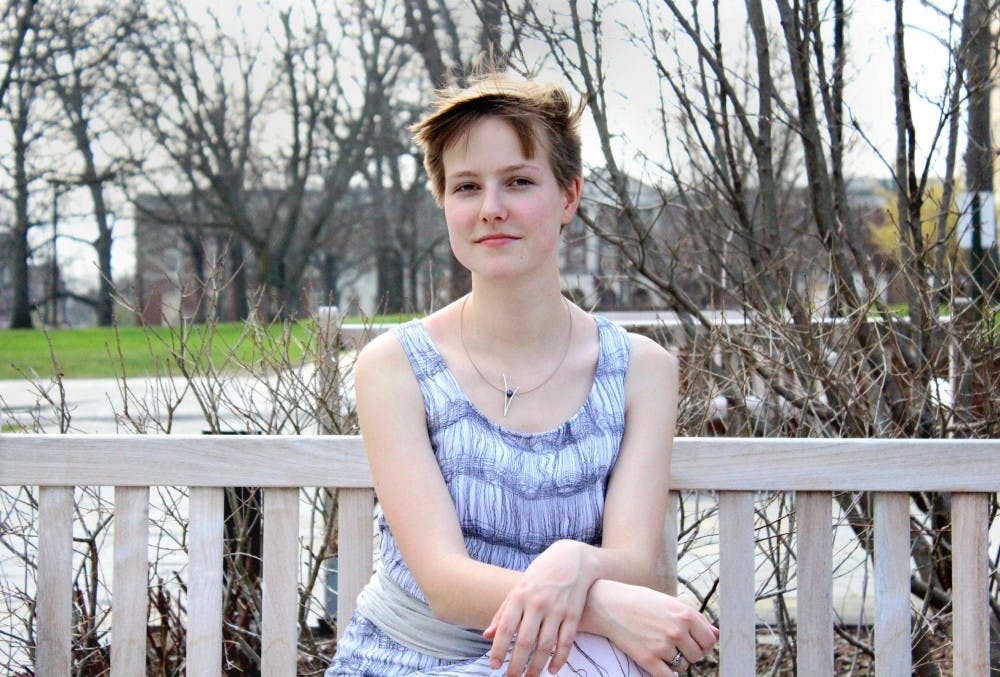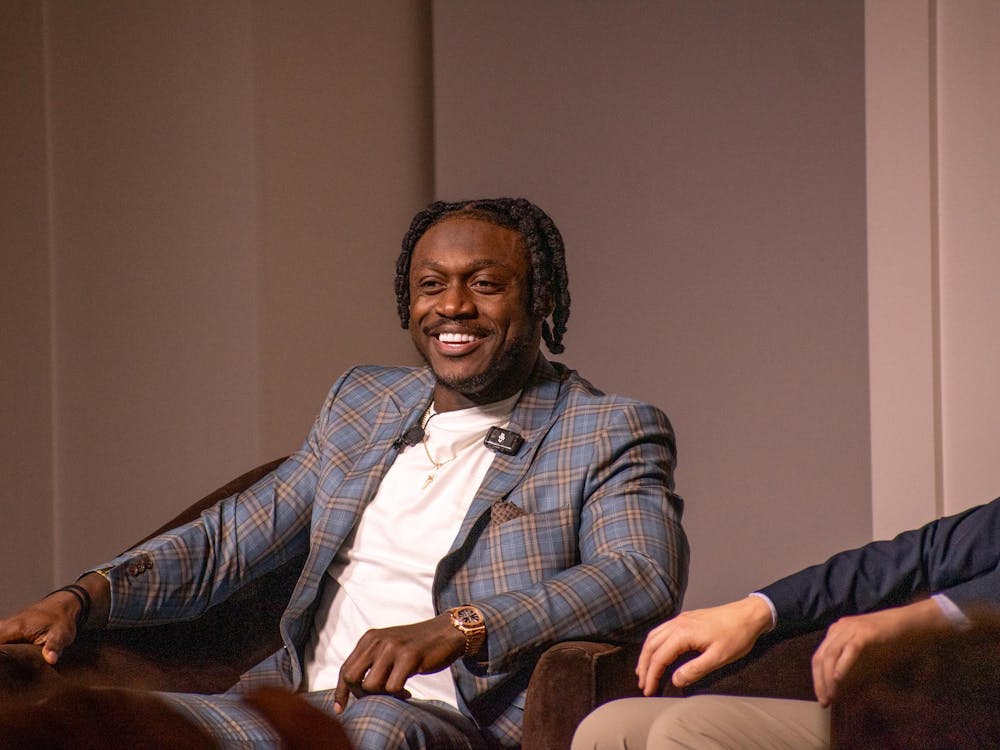When first-year Carolina Vissers was six years old, her family packed up everything they owned and traveled 4,000 miles across the Atlantic Ocean.
They left their small dairy farm in the Northeast Netherlands and arrived at a farm more than 10 times as large in Hicksville, a small town in Northwest Ohio.
When Vissers came to the U.S., she was was absolutely terrified and barely knew how to speak English.
"I left behind all my friends, and I absolutely hated it here," she said.
Initially, she wanted nothing to do with the U.S., but now she said she's finally at a place where she'd be content staying for the rest of her life. It took her a long time to reach this point, but she'll always carry a piece of the Netherlands with her.
Before leaving the Netherlands, a holiday was coming up -- basically the Dutch version of Santa Claus -- in early December. Her primary school celebrated it early for her and gave her a stuffed bear and a booklet of all her classmates.
"They had all written their own little personalized notes in there and told me to tell all of my worries to the bear," Vissers said. "That was a huge coping mechanism for me -- I still have that little stuffed bear."
Still, the hardest part was adapting to a new school system, with a new language and all new classmates who'd never met anyone from the Netherlands before.
"I was a token diversity kid," Vissers said. "Which was weird as all hell. A lot of people had no idea where the Netherlands was or what it's like. I've gotten questions like, 'Do you have internet in the Netherlands?' And I'm just like, 'Yes, we do -- just like every other developed country and even many non-developed countries at this point.'"
Eventually, as they all got older, Vissers said people had mostly forgotten that she wasn't born in the U.S.
The Visser family, Carolina, her brother Niek and their parents, had moved to the U.S. because it didn't seem financially possible to stay in the Netherlands and continue farming. They looked at a few different countries, including France, and eventually decided on America. During that time, there were many Dutch farmers who moved to the Michigan, Ohio, Indiana area, but they were the only ones in their family.
The town she lived in back in the Netherlands was quite different from the farm towns of Northwest Ohio. Not only were they the only Dutch family in the small town of Mark Center, they were one of the only international families which was added to the huge culture shock.
Enjoy what you're reading?
Signup for our newsletter
It took a while, but she learned to appreciate her own unique mix of culture that came from living on the dairy farm.
"A lot of our employees are now Hispanic, or of Hispanic descent, which is a whole 'nother culture," she said. "We have Americans, we have Dutch people, obviously, and we have Hispanics. We're creating that intuitive environment where everybody can work alongside each other, learning about different cultures."
Much of Vissers' childhood was spent on her family's growing farm. They went from 60 cows back in the Netherlands to around 1,700 today. Vissers looks back fondly on her time spent running around the farm. She enjoyed helping her mother with the financials and eavesdropping on a few of the "bigwig" conversations. But she mostly loved working with the animals and helping to milk the cows.
"It was intense," Vissers said. "And messy! But I enjoyed it."
However, she knew from the time that she was four years old that she would never grow up to take over the family farm, and her parents knew it, too.
"I was not interested in it at all. They could have pushed me or my brother to take over the farm, but honestly, it's not going to be as good of a farm if the person who's running it doesn't truly care. And I don't truly care about it. I enjoy it, but I don't have that passion, that drive, that my parents do."
Instead, her parents allowed her to follow her own path, but they always knew she'd end up studying something in the science or medical field.
Today, she's a biological physics and premedical major at Miami and does research in the biophysics lab.
"It's all about lasers and yeast, and I honestly don't understand half of it," she said with a laugh. "Basically, it's sensing metabolism changes in yeast compared to cyanide and glucose and stuff like that. It has applications to cancer research."
While it would have been cheaper to study in the Netherlands as a Dutch citizen, she chose to stay in the U.S. because there are better residency opportunities, and it would be difficult to transfer medical licenses across the two countries.
Recently, Vissers, who's still on a Visa, has had to seriously consider the chance of being deported, something not too many of her classmates ever think about.
"They don't have the anxiety in the back of their mind that at any moment, things could go south and within a year, I could be back in the Netherlands," Vissers said. "It's terrifying to think that even though I've been here for 13 years, I could have to leave the States."
But for now, Vissers is throwing herself into life at Miami.
She's recently gotten involved with the fencing club, something she would have never had the chance to do back home in her small town, as well as volunteering at the hospital and joining a few medical organizations.
davisa10@miamioh.edu




